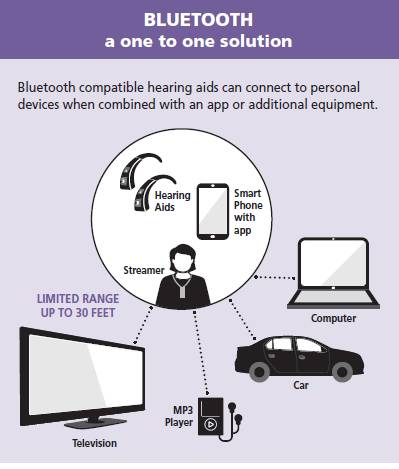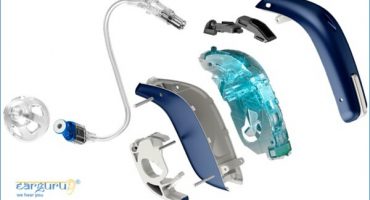Once we start using Hearing aids and get used to them, they become an integral part of our Hearing system. Hearing aids become the first and important part of the Hearing mechanism chain. Our hearing chain starts at our external ear, the visible part of the ear. The external ear collects the sound and directs it towards the ear canal. Hearing aids become an extended part of our ears.
We do as much research as possible and read blogs on tips to select the best Hearing aids. But do they remain the best over a period of time? The answer is no. There are various reasons which require us to replace our Hearing aids or upgrade them after a period of time.
Table of Contents
- How Long Do Hearing Aids Last?
- We Should Replace Our Hearing Aids If They Repeatedly Need Repairs
- We Should Replace Our Hearing Aids If They Do Not Suit Our Hearing Loss
- We Should Replace Our Hearing Aids If They are difficult to Handle
- Hearing Aid Handling Problems Faced By the Elderly
- We Should Replace Our Hearing Aids as Per Our Lifestyle
- We Should Replace Your Hearing Aids If The New Features Are Beneficial
- Why Can’t We Replace Our Hearing Aids to Feel Good
How Long Do Hearing Aids Last?
There is no fixed time, life span or thumb rule on the working life of a Hearing aid. Even if they are working perfectly, there are other reasons which require us to replace our hearing aids. Technical failure remains the biggest reason for us to replace our hearing aids. With damage or physical breakage being the second reason. General estimates are that the average life of the Hearing aids is anywhere from 4 years to 6 years.
Let us read about the common reasons for replacing our Hearing aids.
We Should Replace Our Hearing Aids If They Repeatedly Need Repairs

Do your Hearing aids break down regularly? Repeated trips to the workshop can be a frustrating experience. A hearing aid is an electronic device. The external shell or body contains a circuit which gets its power from the small battery. Like any other electronic or electrical device, the components in the circuit do show a reduction in performance. Small problems show up over a period of time. The smaller the Hearing aid, the more delicate and prone to handling, sweat and moisture. We should take care of our Hearing aids. Read about the simple home maintenance tips which can extend the life our Hearing aids.
Get the Hearing Aids Checked By an Audiologist
It is important that the Audiologist or a Hearing aid technician checks the Hearing aids. The Hearing aids need checking at regular intervals. The performance of the Hearing aid may deteriorate gradually. The Human body is very good at adapting to the changing conditions. The user of the hearing aid will get used to the sound even if the hearing aid is not performing well. Just because we cannot detect a problem does not mean that the Hearing aid is working well. A Hearing aid professional can judge the performance of the Hearing device better. There is no thumb rule as to how often the Hearing aids need a performance check. Twice a year is a good enough period or as often as you get your medical check-up done.
We Should Replace Our Hearing Aids If They Do Not Suit Our Hearing Loss
Sensorineural Hearing loss is the most common type of hearing loss. Besides other reasons, 90% of the cases are age-related. The hearing loss will keep on increasing as the age advances. The sound output or power of the hearing aid depends on the model selected. The Audiologist generally keeps some headroom or spare power while programming. This practice helps to increase output when required and keep the distortion low. Depending on the reserve power, it is possible that the output is not enough to match the increasing hearing loss.
At this stage, it is advisable to replace our hearing aids to match the current hearing loss.
We Should Replace Our Hearing Aids If They are difficult to Handle
Selection of hearing aids depends on a combination of multiple factors. The users Hearing loss Audiogram and the ability to handle the device. It is possible that someone using an IIC (Invisible In Ear) or a CIC (Completely In Canal) earlier is unable to operate it anymore. These small In The Ear type of hearing aids are very delicate and have either no controls or very small buttons. Inserting the small battery is a challenge even for the young users.
Hearing Aid Handling Problems Faced By the Elderly

A person who has advanced in age may develop unsteady hands or reduced agility. Or a person suffering from Arthritis may not be able to insert the small hearing aid properly into the ear. If the hearing aid is not inserted properly in the ear, it will give rise to feedback. Besides feedback, there are chances of the hearing aid falling off. The acrylic shell of the Hearing aid is brittle and can easily crack or break into pieces. Breakage and physical damage is generally not covered by the warranty.
Under these circumstances, the person should replace the hearing aid with a BTE (Behind the Ear) type of hearing aid. BTE hearing aids are easy to handle and the controls are reasonable large to operate. Handling their hearing aids themselves gives a feeling of independence to the elders.
We Should Replace Our Hearing Aids as Per Our Lifestyle
Lifestyle is an important factor to consider while selecting the type or style of hearing aid. A promotion in the office can change the lifestyle of a young or middle age upcoming professional.
A change in job profile could involve meeting with customers. The professional may not like his hearing aids to be visible. Under these circumstances, the person can replace the existing BTE hearing aids with IIC or a CIC.
Another feature one can consider is Bluetooth connectivity. A person who is on the cell phone most of the time can replace his hearing aids with the one with the Bluetooth feature. This will enable the user to stream the phone audio straight to his ears. The user will have to struggle to hear with a conventional hearing aid. The humming sound and the shrill feedback will make conversation difficult.
The selection or upgrading to a new hearing aid should be only as per the recommendations of the Audiologist.
We Should Replace Your Hearing Aids If The New Features Are Beneficial

We are happy with the sound quality of our hearing aids and have no complaints what so ever. But we may find the new available features attractive. The new generation of Digital hearing aids are not limited to delivering distortion free sound. The new features make the user’s life simple by offering a lot of features which were unimaginable a few years back.
If you like watching television and are not happy as the audio is not clear. You need not to worry any more. The new hearing aids can be connected to a streamer. A streamer is a device which connects to your television and transmits sound directly to your hearing aids. No more increasing the Television volume and irritating others in the room.
If you are a music lover and your current hearing aids make music unbearable. Replace your hearing aids with the one which has a music mode. This feature is especially for listening to music.
Do read about the many features in advanced digital hearing aids to get familiar with the latest developments.
Did You Know That Digital Hearing Aids Can Monitor Your Health?
Well, this is the latest technology. The Starkey Livio AI has a built-in heart rate monitor and activity tracker. It also sends alerts to the selected contacts if the user falls down. Very useful for senior citizens who stay alone.
The Oticon OPN gives mail and social media alerts, besides a fire alarm alert.
Why Can’t We Replace Our Hearing Aids to Feel Good
If you are using a bulky BTE style of hearing aid and like the new In the ear type. Go ahead and discuss with your Audiologist. As long as the digital hearing aid specifications match the Audiogram. Feel good factor is very important. It’s like buying the latest car or a cell phone. People replace their cell phones every 2 years even if the old one is functioning well. So why can’t we buy a new hearing aid?
Socialising and Communication Keeps You Healthy
It is a confirmed fact that self-isolation can lead to depression in elders. Extreme cases of depression can lead to Alzheimer’s Disease. Using hearing aids which are not suitable can lead to a break in communication. The reason could be performance, change in hearing loss or lifestyle. Do not hesitate to replace your hearing aids with the latest to live life to the fullest.
About the Author




